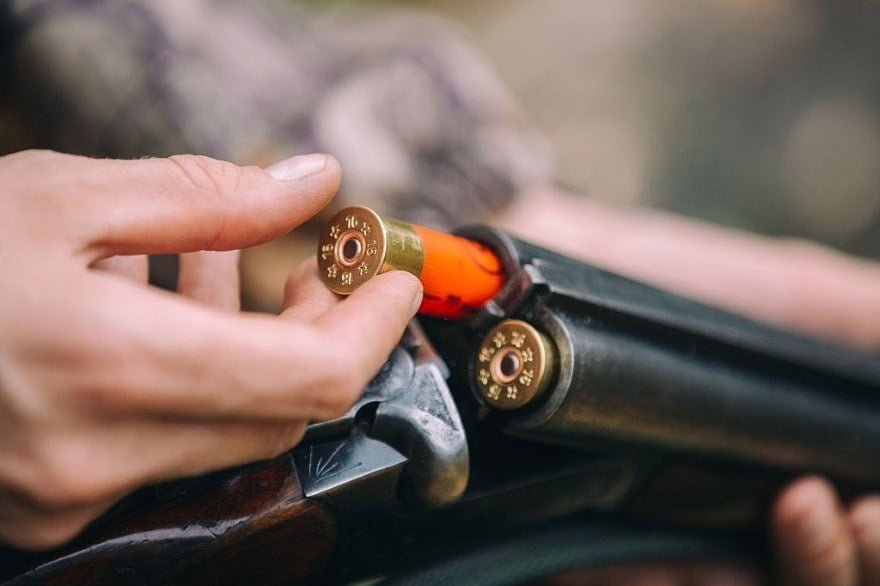What type of shotgun pellets are allowed for waterfowl hunting in the US? With the arrival of cooler weather in the United States, hunters prepare to head to the marshes in the hopes of shooting down some birds. The conservation authorities, on the other hand, are keeping a close eye on illegal shot-shell use at this time.
Read more: Best Pellet Guns for Squirrel Hunting
In the United States, hunters frequently find themselves in violation of the law while on a waterfowl hunting frenzy. When they are arrested, most hunters protest and accuse the cops of discrimination, while others are allowed to continue hunting. They are completely unaware that they have broken the law.

3 Types Of Shotgun Pellets Allowed For Waterfowl Hunting In The US
Tungsten
Tungsten is a safe alternative to steel for waterfowl hunting around the world, not only in the United States. So, when steel loads are out of reach, grab some tungsten loads and get your waterfowl hunting adventure begun.
Tungsten is more dense than lead and will produce excellent results. It's worth noting that tungsten is quite costly, and you'll most likely have to fork over some serious cash.
Steel
Hunters were dissatisfied with steel after the ban on lead, accusing it of having a restricted effective range, being offset by high velocity, and ruining older shotguns - including classic shotguns!
Manufacturers have rolled up their sleeves and made considerable modifications to their steel pellets as a result of these criticisms. The following are a few of the most notable improvements:
Increasing the speed with which the rounds are fired.
Steel loads have been designed to be faster than previous versions while maintaining chamber pressure. The features are designed to address steel's inability to hold sufficient energy.
When employing steel pellets, it's worth noting that increasing the size of your shotgun pellets is recommended. The higher the performance of shotgun pellets, the larger they are.

Steel is more expensive than lead, but the benefits it provides are well worth the expenditure. Steel shotgun pellets are the safest for use in wetlands since they do not poison the ecosystem.
Aside from steel pellets, the US Fish and Wildlife Service has developed other pellets that are expected to outperform lead.
These loads are not only environmentally friendly but can also be used in both modern and vintage shotguns. Because the majority of these alternatives are composed of metal alloys, they are slightly more expensive than steel.
Bismuth
Bismuth shots are a wonderful choice for vintage shotgun hunters. The hardness and velocity of tungsten or steel shots may be too much for those guns to handle. Bismuth is 14 percent less dense than lead in terms of density.
As a result, if you're seeking loads with similar properties to lead, this is the ideal option. Its ballistic characteristics are nearly equal to those of lead.

It also has a strong downrange energy that allows you to make a precise shot. Bismuth loads are less expensive than tungsten but more costly than steel.
As previously said, when going out for waterfowl hunting, you should use the permitted equipment. The use of non-toxic shotgun pellets that do not pollute the environment is one of these gears.
Using hazardous pellets such as lead has a number of drawbacks. Let's go right to the point and look at the dangers of utilizing lead shotgun pellets.
Read More: What Safety Precaution Should You Take When Hunting From A Boat
Dangers of Using Lead For Hunting Waterfowls
Epidemic outbreak
Lead pellets have the potential to start an epidemic quickly. When sick birds infect healthy birds, an epidemic occurs, posing a threat.
According to research, a single bird with poisoning symptoms can spread the sickness to up to five waterfowls. This means that many birds are likely to perish as a result of lead poisoning.
Waterfowl numbers can be dramatically reduced as a result of lead poisoning in the aquatic environment. In the event of an epidemic, the bird population will plummet rapidly.
Furthermore, their rate of reproduction will be low, perhaps resulting in a population decline.
Weakening the immune system
Lead has a detrimental effect on the health of ducks. The immune system of the birds is weakened after these pellets are swallowed and absorbed into their system. The bird becomes prone to disease and may succumb to poisoning as a result.
Conclusion
Now that you know what type of shotgun pellets are allowed for waterfowl hunting in the US, it's time to choose your favorite from the options in this article.
Even yet, bismuth is a good choice because it combines the best of both worlds. However, if you're unsure where to begin, this may be the greatest alternative.
Just keep in mind that the most important thing is to protect the environment, as well as your own health. Don’t forget to share this article with your fellows so that they grasp these useful tips and information.
